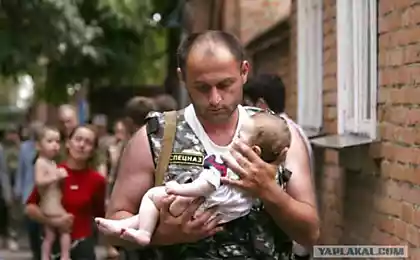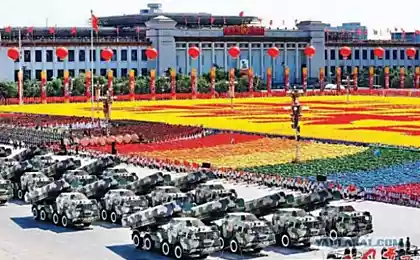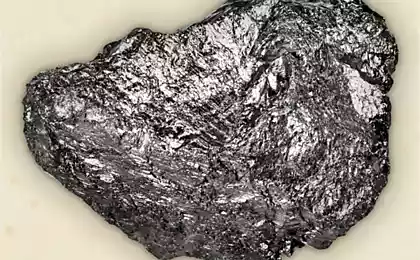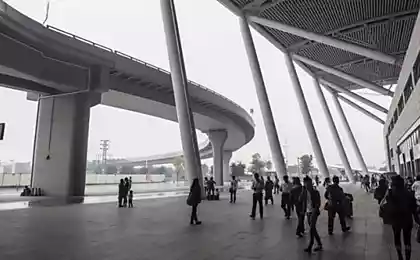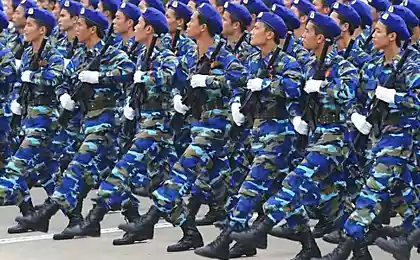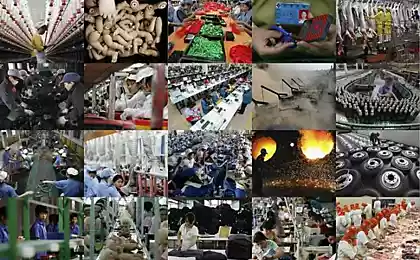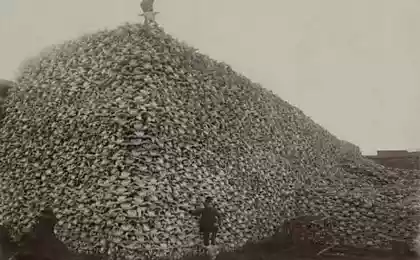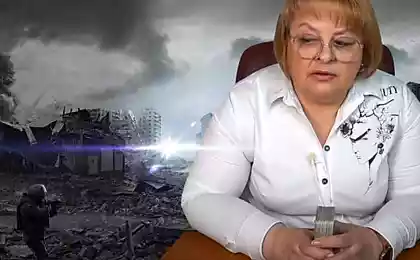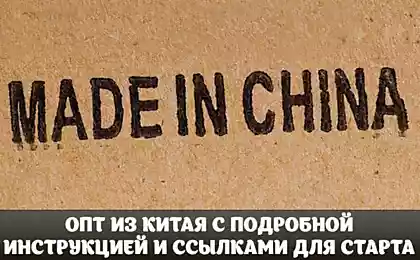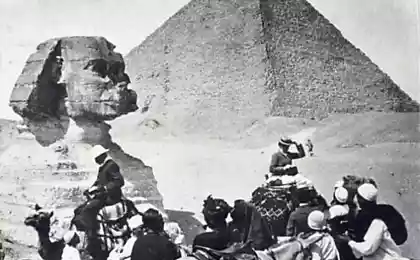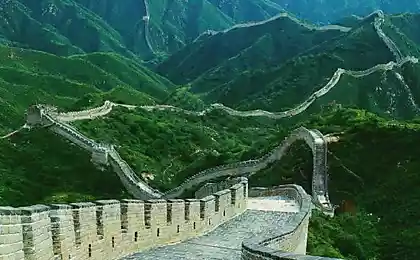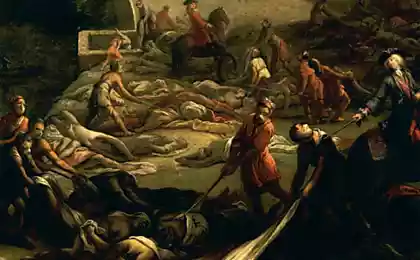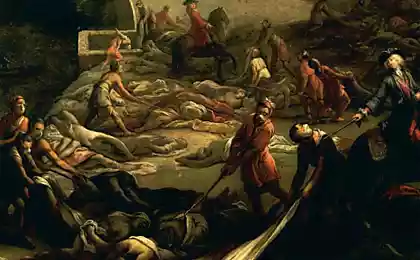1573
World War II through the eyes of China
On the eve of the 70th anniversary of the Great Victory we took our Chinese colleagues interviewed about the Second World War. We became interested in what they think and know about events in China this time. Explore the most interesting answers.
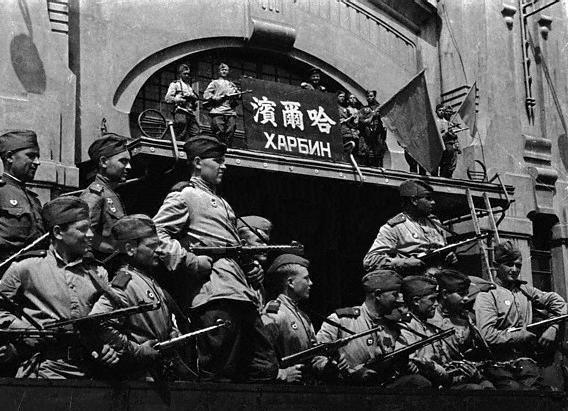
What do you know about World War II? What was the role of China in this war? B>
This destructive war has touched every family in China, every city. All educated people know this as the Second World War, but many in the first place, remember that period as the Sino-Japanese War. China has become the main battle front in Asia. Japan attacked us on July 7 in 1937, it was before the start of World War II, and these events continued during the Second World War. This is in 1941, Japan attacked the US at Pearl Harbor. According to historical records, Japan would quickly gain our territory and to strengthen the impact on the territories of other countries as well. The Chinese army was weak then, there was no unity, conducted an internal power struggle between the two parties. The United States and the Soviet Union helped to contain the attack of the aggressor, they could not implement all its plans.
Learn whether the subject in the school curriculum? B>
The school has a world history and the history of the country. Within these two subjects we studied World War II and in more detail the Sino-Japanese war. The program on these topics lasts about six months, it is long enough. And since there are so many sources of information, the TV or the Internet. There are various documentaries of the war years, short stories with facts about the characters. Sometimes show war movies about the Soviet Union. But recently I have seen on TV about the transfer of Russian soldiers who helped us during the war in the north-east of China, some of these children were born right in China during the war. And we looked at the recently released film Stalingrad, a very good movie.
As a consequence of the war affected the further development of China? B>
In the post-war period it was hard, of course, like everything in this period.
During the Japanese attack two opposing parties - the Communists and the Kuomintang - joined forces to fight the enemy. There were 2 separate front from each party, but still fought against the Japanese. When the war in September 1945 ended with the surrender of Japan, a few years lasted civil war between the parties. Only in 1949, the Red Army managed to take control of the territory of China, at the same time and was proclaimed the PRC. For our history has begun a new, completely different period of development. We wanted to become strong, to grow economically. Because of the war with Japan and, in general, from the Second World War, we have learned a great lesson - if your country is weak, you will never be able to protect themselves from an aggressor. We wanted to be strong. And, of course, the Soviet Union helped us a lot in our development. Perhaps the post-war period was for us a kind of uplifting the spirit and faith in his country.
Do you celebrate any events associated with victory? B>
We do not celebrate these events each year. Most passed from grandparents to children and grandchildren. This memory must live. But once in ten years, we are usually in the cities of military parades. But this year, September 3rd we will celebrate the 70th anniversary of the end of World War II, as China was the main Asian front. And so we have the memorial events - memorial days. December 13 is a national day of remembrance in connection with the "Nanjing Massacre". Nanjing was then the capital of China. Japanese during the occupation in 1937 brutally killed 300 thousand people, not only soldiers, but also civilians.
Does somehow society of veterans of war? B>
To be honest, about the government support is difficult to say, we do not know. Most veterans are not very good living conditions. But many non-governmental organizations, they try to provide them all possible assistance.
What do you think about the role of the Soviet Union in World War II? B>
Of course, we know that a lot of countries struggling against fascism, the United States, Britain, France played an important role. But if it were not for the action of the Soviet Union under Stalin's leadership against the Germans and the whole fascist coalition, probably all would have ended differently. Therefore, we have great respect for the history and the courage of the Soviet people, who managed to unite for one purpose, to repel the aggressors and bring peace. For us, the Soviet Union - a winner and a hero. It is important to always remember the story and pass it on from generation to generation. For example, we are very sad that Japan does not recognize its attack on us.
What do you know about the relationship of the Soviet Union and China in this period of time? B>
We know that the Soviet Union helped us every assistance. Perhaps above all, money, weapons and soldiers. And even after the German attack on Russia you can still help us in our border areas to contain the Japanese attack. This has helped us to defend their territorial interests and prevent further spread of Japanese aggression. We keep gratitude for the help your people. With the fighting began our friendship strong relationship between the two countries.
Do you know someone from the Russian heroes of this war? B>
We know Zhukov, of course. He is great. We do someone else know, but the names difficult to remember Russian.
We have heard that in China, the old Soviet popular songs of the war years, why? B>
In many ways, this is due to the good relations between China and the Soviet Union. You know, we learned a lot from the Soviet Union and has always felt the support. During the war, your soldiers helped us to defend territory in the north-east of the country from the aggression of the Japanese. In the quiet time they are together with our soldiers singing =). Then, during the time of formation of the Communist Party came to us with your team and help us on various issues, we have studied and traveled to you. Earlier in the schools taught Russian language as the second, and not English. In general, our people imbued with Russian culture, especially true for the residents of the north to the border areas. Russian music of those years sounds nice, melodic, something it has such a sad and tender. Our parents is especially pleased. And some of the songs we even translated into Chinese, they were very popular also because of the meaning of the songs.
What would you wish for all of us:
We want to live in peace with all, and we want to never have been wars and armed conflicts. Our younger generation seems that one should always try to negotiate and find a compromise by any means calm. But we certainly support the idea that the state should be strong and ready to protect us from aggression, if that happens. We took a lot of lessons from the history of the war - is the pain and chaos, I want to live without it, we hope that it will.
Source: geektimes.ru/company/ucbrowser/blog/250150/

What do you know about World War II? What was the role of China in this war? B>
This destructive war has touched every family in China, every city. All educated people know this as the Second World War, but many in the first place, remember that period as the Sino-Japanese War. China has become the main battle front in Asia. Japan attacked us on July 7 in 1937, it was before the start of World War II, and these events continued during the Second World War. This is in 1941, Japan attacked the US at Pearl Harbor. According to historical records, Japan would quickly gain our territory and to strengthen the impact on the territories of other countries as well. The Chinese army was weak then, there was no unity, conducted an internal power struggle between the two parties. The United States and the Soviet Union helped to contain the attack of the aggressor, they could not implement all its plans.
Learn whether the subject in the school curriculum? B>
The school has a world history and the history of the country. Within these two subjects we studied World War II and in more detail the Sino-Japanese war. The program on these topics lasts about six months, it is long enough. And since there are so many sources of information, the TV or the Internet. There are various documentaries of the war years, short stories with facts about the characters. Sometimes show war movies about the Soviet Union. But recently I have seen on TV about the transfer of Russian soldiers who helped us during the war in the north-east of China, some of these children were born right in China during the war. And we looked at the recently released film Stalingrad, a very good movie.
As a consequence of the war affected the further development of China? B>
In the post-war period it was hard, of course, like everything in this period.
During the Japanese attack two opposing parties - the Communists and the Kuomintang - joined forces to fight the enemy. There were 2 separate front from each party, but still fought against the Japanese. When the war in September 1945 ended with the surrender of Japan, a few years lasted civil war between the parties. Only in 1949, the Red Army managed to take control of the territory of China, at the same time and was proclaimed the PRC. For our history has begun a new, completely different period of development. We wanted to become strong, to grow economically. Because of the war with Japan and, in general, from the Second World War, we have learned a great lesson - if your country is weak, you will never be able to protect themselves from an aggressor. We wanted to be strong. And, of course, the Soviet Union helped us a lot in our development. Perhaps the post-war period was for us a kind of uplifting the spirit and faith in his country.
Do you celebrate any events associated with victory? B>
We do not celebrate these events each year. Most passed from grandparents to children and grandchildren. This memory must live. But once in ten years, we are usually in the cities of military parades. But this year, September 3rd we will celebrate the 70th anniversary of the end of World War II, as China was the main Asian front. And so we have the memorial events - memorial days. December 13 is a national day of remembrance in connection with the "Nanjing Massacre". Nanjing was then the capital of China. Japanese during the occupation in 1937 brutally killed 300 thousand people, not only soldiers, but also civilians.
Does somehow society of veterans of war? B>
To be honest, about the government support is difficult to say, we do not know. Most veterans are not very good living conditions. But many non-governmental organizations, they try to provide them all possible assistance.
What do you think about the role of the Soviet Union in World War II? B>
Of course, we know that a lot of countries struggling against fascism, the United States, Britain, France played an important role. But if it were not for the action of the Soviet Union under Stalin's leadership against the Germans and the whole fascist coalition, probably all would have ended differently. Therefore, we have great respect for the history and the courage of the Soviet people, who managed to unite for one purpose, to repel the aggressors and bring peace. For us, the Soviet Union - a winner and a hero. It is important to always remember the story and pass it on from generation to generation. For example, we are very sad that Japan does not recognize its attack on us.
What do you know about the relationship of the Soviet Union and China in this period of time? B>
We know that the Soviet Union helped us every assistance. Perhaps above all, money, weapons and soldiers. And even after the German attack on Russia you can still help us in our border areas to contain the Japanese attack. This has helped us to defend their territorial interests and prevent further spread of Japanese aggression. We keep gratitude for the help your people. With the fighting began our friendship strong relationship between the two countries.
Do you know someone from the Russian heroes of this war? B>
We know Zhukov, of course. He is great. We do someone else know, but the names difficult to remember Russian.
We have heard that in China, the old Soviet popular songs of the war years, why? B>
In many ways, this is due to the good relations between China and the Soviet Union. You know, we learned a lot from the Soviet Union and has always felt the support. During the war, your soldiers helped us to defend territory in the north-east of the country from the aggression of the Japanese. In the quiet time they are together with our soldiers singing =). Then, during the time of formation of the Communist Party came to us with your team and help us on various issues, we have studied and traveled to you. Earlier in the schools taught Russian language as the second, and not English. In general, our people imbued with Russian culture, especially true for the residents of the north to the border areas. Russian music of those years sounds nice, melodic, something it has such a sad and tender. Our parents is especially pleased. And some of the songs we even translated into Chinese, they were very popular also because of the meaning of the songs.
What would you wish for all of us:
We want to live in peace with all, and we want to never have been wars and armed conflicts. Our younger generation seems that one should always try to negotiate and find a compromise by any means calm. But we certainly support the idea that the state should be strong and ready to protect us from aggression, if that happens. We took a lot of lessons from the history of the war - is the pain and chaos, I want to live without it, we hope that it will.
Source: geektimes.ru/company/ucbrowser/blog/250150/
